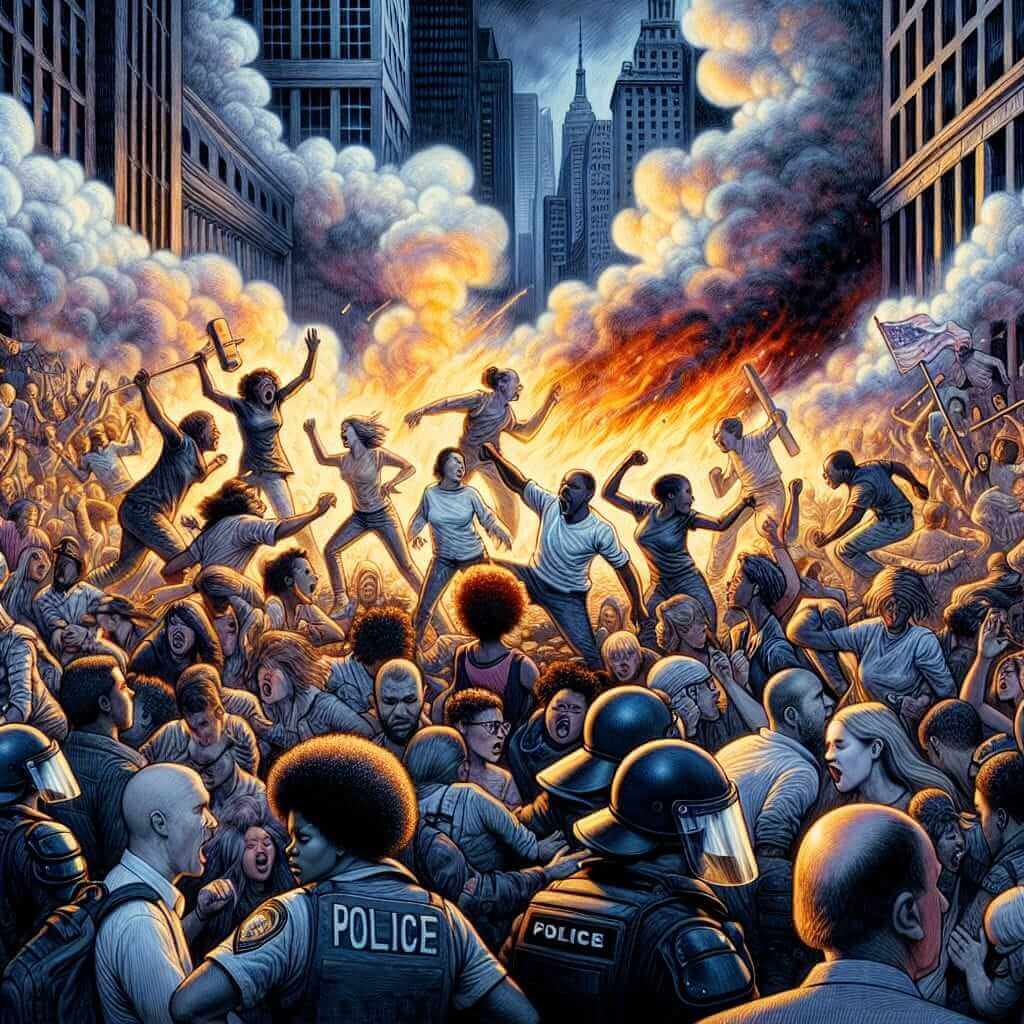“The effects of political instability on social order” is a common theme in IELTS Writing Task 2, particularly in the opinion essay format. This topic delves into the complex relationship between a nation’s political climate and its societal harmony.
Examining this issue often involves discussing:
- Causes of political instability: Corruption, social inequality, economic crises, historical grievances.
- Consequences on social order: Increased crime rates, social unrest, mass migration, decline in public trust, hindered economic development.
- Possible solutions: Promoting good governance, addressing social inequalities, fostering dialogue and reconciliation.
Potential IELTS Essay Questions
This theme has a high probability of appearing in various forms within the IELTS Writing Task 2. Below are a few examples of how this topic might be presented:
- Some people believe that political instability in a country is always detrimental to its economic and social development. To what extent do you agree or disagree?
- Political instability can lead to a breakdown in law and order. What are the causes of this problem, and what measures can be taken to address it?
- Discuss the effects of political instability on the social fabric of a nation. Provide specific examples to support your arguments.
Sample IELTS Essay:
Let’s delve into a sample essay addressing the first question:
[quote]
Some people believe that political instability in a country is always detrimental to its economic and social development. To what extent do you agree or disagree?
[end quote]
Essay Analysis:
This question requires you to present a clear stance: do you completely agree that political instability always harms a nation, disagree entirely, or fall somewhere in between?
Remember to:
- Structure your essay clearly: Include an introduction, body paragraphs supporting your stance with evidence, and a conclusion.
- Use strong linking words and phrases: This ensures a cohesive and logical flow of ideas.
- Provide relevant examples: Illustrate your points with real-world instances.
Model Essay:
Political instability, often characterized by frequent changes in leadership, social unrest, and a lack of faith in governing institutions, is widely considered a roadblock to a nation’s progress. While it is tempting to believe that such instability is always detrimental to economic and social development, I believe this perspective is overly simplistic and ignores the nuances of this complex issue.
Unquestionably, persistent political turmoil can have disastrous consequences. When a country is plagued by violence, uncertainty, and a lack of clear direction, businesses are reluctant to invest, vital infrastructure crumbles, and essential services like healthcare and education suffer. This creates a vicious cycle where economic hardship further fuels social unrest, exacerbating the existing instability. The Rwandan genocide, ignited by political manipulation and ethnic tensions, serves as a stark reminder of the devastating human cost of unchecked political instability.
However, it is crucial to recognize that not all instances of political instability are inherently negative. In some cases, periods of upheaval can be catalysts for positive change. For example, the Arab Spring, while ultimately leading to mixed outcomes, initially brought down autocratic regimes and ignited a desire for greater democracy and human rights across the Middle East. Similarly, the collapse of the Soviet Union, though undoubtedly turbulent, ultimately paved the way for democratic reforms and economic liberalization in Eastern Europe.
In conclusion, while the immediate impacts of political instability are often negative, particularly in terms of economic and social development, it is essential to recognize that the long-term consequences are not always predictable. History is replete with examples of nations that have emerged stronger from periods of political change, demonstrating that such instability can, under certain circumstances, be a catalyst for positive transformation.
(Word count: 298)
Writing Tips:
- Use academic language: Avoid overly informal language, slang, or contractions.
- Vary your sentence structure: Mix simple, compound, and complex sentences for better flow and readability.
- Be mindful of your grammar and punctuation: Errors in these areas can lower your score.
Useful Vocabulary:
- Detrimental (adjective) /ˌdet.rɪˈmen.təl/ : causing harm or damage.
- Nuances (noun) /ˈnuː.ɑːn.səz/ : subtle differences in meaning or expression.
- Unquestionably (adverb) /ʌnˈkwes.tʃə.nə.bli/ : without any doubt.
- Plagues (verb) /pleɪɡz/ : causes continual trouble or distress to.
- Vicious cycle (noun) /ˈvɪʃ.əs ˈsaɪ.kəl/ : a situation in which one problem leads to another, which then makes the original problem worse.
- Exacerbating (verb) /ɪɡˈzæs.əˌbeɪt/ : making a problem, bad situation, or negative feeling worse.
- Catalysts (noun) /ˈkæt̬.əl.ɪsts/ : something that causes a change or event to happen.
- Autocratic regimes (noun) /ˌɑː.t̬oʊˈkræt̬.ɪk reɪˈʒiːmz/ : governments ruled by a single person with absolute power.
- Replete with (adjective) /rɪˈpliːt wɪθ/ : filled with a large amount of something.

Conclusion:
Mastering the art of writing a compelling IELTS essay on complex issues like the effects of political instability on social order requires a blend of knowledge, critical thinking, and effective communication skills. By understanding the nuances of the topic, structuring your essay logically, and using appropriate vocabulary, you can confidently approach this essay type and achieve your desired band score. Remember to practice regularly with different prompts, seek feedback, and continue expanding your vocabulary to excel in the IELTS Writing exam.